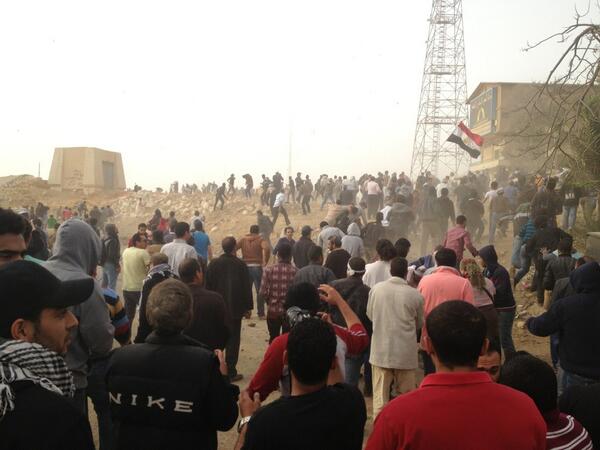CAIRO: With Iran still in the throes of the backlash of its recent presidential election results, the former US Director of National Intelligence John Negroponte admitted that its internal dynamic was the most difficult to understand.
In an interview with Daily News Egypt, Negroponte said that during his tenure as director (from 2005-2007) Iran constituted the greatest challenge to ascertain its inner workings.
Negroponte, who was also former US Deputy Secretary of State, said, “When I was director of national intelligence, probably the most enigmatic country, the hardest country to fathom was Iran, what’s going on inside.
Speaking of recent events in Iran where demonstrations have kicked off after Mahmoud Ahmedinejad was reelected beating reformist Mor Hossein Mousavi, Negroponte said it was difficult to read the intentions of its leadership.
Iran “is led by an authoritarian cleric [Supreme Ayatollah Ali Khameini] who is basically the key decision maker and I think he has almost absolute authority and he is not exactly the most transparent of leaders so I don’t know where this is going to go, he said.
“My own belief is that the troubles you see now are reflective of some real rivalries in the top leadership of Iran, Negroponte added.
He did point out his belief that Iran was pursuing a nuclear weapon and that it exported violence to other countries in the region, including Iraq where he served as ambassador in 2004.
Negroponte was in Egypt to attend the Cairo Global Leadership conference organized by Egypt’s International Economic Forum and the Yale World Fellows Program. In one of the conference’s panel sessions, former ambassador to the US Nabil Fahmy said that events in Iran indicated that the issue of reform in the Middle East was here to stay.
“I don’t think the issue of democratic change in the region will ever disappear and it’s not a problem frankly as long as it’s being done by people in the region, and it takes its own gradualism and momentum in terms of evolution, he said.
“Clearly there is a tension in Iran today in terms of where they’re going, Fahmy added.
Newly appointed Chairman of Al-Ahram, Abdel-Moneim Saeed, said there was a desire for democracy in the region but tempered it by stating that each country needed to go at its own pace.
“[Because of] the whole process of the expansion of liberalization and the market of ideas, I believe the world will get there [to democracy], he said, “However, the way it starts is the business of every country.



